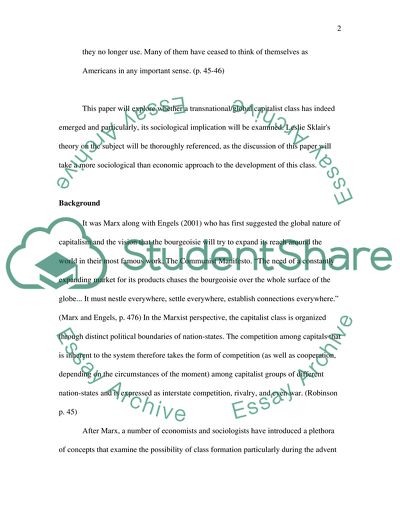Cite this document
(Is there a Global Capitalist Class Essay Example | Topics and Well Written Essays - 4750 words, n.d.)
Is there a Global Capitalist Class Essay Example | Topics and Well Written Essays - 4750 words. Retrieved from https://studentshare.org/sociology/1719510-is-there-a-global-capitalist-class
Is there a Global Capitalist Class Essay Example | Topics and Well Written Essays - 4750 words. Retrieved from https://studentshare.org/sociology/1719510-is-there-a-global-capitalist-class
(Is There a Global Capitalist Class Essay Example | Topics and Well Written Essays - 4750 Words)
Is There a Global Capitalist Class Essay Example | Topics and Well Written Essays - 4750 Words. https://studentshare.org/sociology/1719510-is-there-a-global-capitalist-class.
Is There a Global Capitalist Class Essay Example | Topics and Well Written Essays - 4750 Words. https://studentshare.org/sociology/1719510-is-there-a-global-capitalist-class.
“Is There a Global Capitalist Class Essay Example | Topics and Well Written Essays - 4750 Words”, n.d. https://studentshare.org/sociology/1719510-is-there-a-global-capitalist-class.


